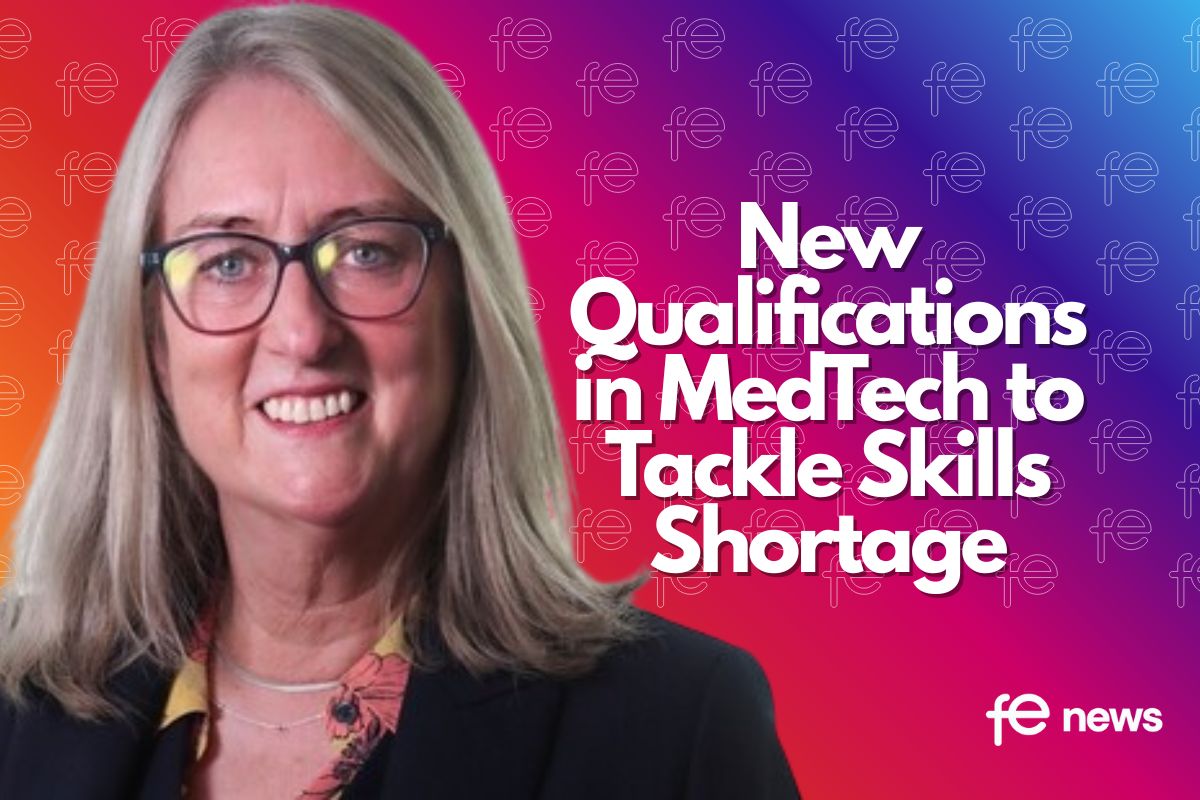Significant work is needed to raise awareness and understanding of #TLevels amongst young people and parents

More awareness still needed of new T Level qualifications
Significant work is needed to raise awareness and understanding of T Levels amongst young people and parents/carers for the programmes to succeed, advises the National Foundation for Educational Research (NFER).
With just under a year until the first wave of the qualifications hit the classrooms in September 2020, there is concern that young people could miss out on studying T Levels due to a lack of awareness and understanding of what the programmes offer.
NFER’s previous study ‘T Levels Research Study: How Are Providers Preparing for Delivery?’ highlighted that a number of providers and sector representatives called for the Government to ensure that T Levels were firmly on the public agenda through effective promotional campaigns to generate interest and awareness. The Government has since launched the NexT Level campaign to raise the profile of its new T Level technical qualifications.
As detailed in NFER’s new follow-up report, based on discussions from their round table with providers and sector representatives in October, providers and sector representatives felt that there remained significant work to do to raise the awareness and understanding of T Levels, despite praising the national and local marketing support. NFER research suggests that, over time, policy makers should provide information on T Levels to students at a much younger age, and particularly before GCSE choices are made.
While there is great commitment and confidence in the sector to deliver these new qualifications from September 2020, there remain other challenges alongside raising awareness, such as uncertainty around progression routes.
Although delegates welcomed the UCAS Tariff Points allocated to T Levels, a majority of universities in the elite Russell Group are yet to decide whether they will accept students who have the qualification and onto what courses. Linked to this, decisions made by Russell Group universities may influence other universities and could tarnish T Levels in the minds of students and parents/carers. It was felt that students studying for a Digital T Level would want to progress to university while those studying Education and Childcare and Construction would more likely seek to progress into employment or apprenticeships. The report suggests that policy makers need to provide more clarity on the progression from T Levels to university and to Level 4 apprenticeships.
 Suzanne Straw, Education to Employment Lead at NFER said;
Suzanne Straw, Education to Employment Lead at NFER said;
“There is no doubt that the positivity and enthusiasm of providers and key sector representatives will drive forward the introduction of the first three T Levels next year. A significant challenge is demonstrating that these new technical education programmes will lead to positive progression into employment, apprenticeships or higher education. As well as focussing on raising awareness of the value of T Levels with students, parents/carers and higher education providers, there needs to be sustained promotion across the full roll out and beyond.”
“While providers are optimistic in regards to the introduction of T Levels and the opportunities they will bring, they are facing a range of challenges in introducing large-scale changes so quickly. For example, the late availability of the full T Level specifications in March 2020 and the tight timescale for fully developing the qualifications is still a cause for concern. As the country approaches a General Election, it is imperative that sufficient ongoing investment and support is given to these new technical qualifications to ensure their success.”
 Association of Employment and Learning Providers chief executive Mark Dawe said:
Association of Employment and Learning Providers chief executive Mark Dawe said:
“If the government wants T levels to succeed, it needs to flex up the programme to encourage more independent training providers with their close links to employers to get involved and generate the huge number of industry placements required. But why is the government looking at possible flexibilities in the on-the-job elements in T levels when it is refusing to consider them for apprenticeships – it’s a glaring inconsistency.
“AELP has serious concerns about the ability of a young person to progress from a T level and this doesn’t mean reaching for inappropriate fixes. T levels will only be fit for purpose if they enable smooth progression.”
 Dr Mary Bousted, Joint General Secretary of the National Education Union, said:
Dr Mary Bousted, Joint General Secretary of the National Education Union, said:
“NFER is right that there has to be a concerted effort to raise awareness about the new T Level awards, particularly around the uncertainty about progression routes. Policymakers need to provide more clarity on the progression from T Levels to university and to Level 4 apprenticeships. If Russell Group universities won’t accept students with T Levels, then the idea of parity will never be more than a pipedream.
“The grading of the award continues to be confusing, with E-A* grades proposed for the core and Pass, Merit, Distinction for the specialist components, is confusing and conflates General Qualifications grading with BTEC style grading. This will not help learners, parents, universities or employers.
“Work experience is a key part of the T levels, but difficulties around the length of time needed, the employers willing and able to offer work placements, and student safety in workplaces involved in construction, hospitals etc have still not been resolved
“Last year the Permanent Secretary asked for a delay of a year for implementation. This was declined by the then Secretary of State, Damian Hinds. The first tranche of T Levels will be rolled out in September 2020. The Secretary of State should have listened to the civil servants – the T Level implementation should be delayed until the many wrinkles are ironed out.”
NFER will continue to track the progress of T Levels over the coming months and years and provide an independent commentary on their progress and outcomes.
This report provides a follow-up to the T Levels Research Study report “T Levels Research: How Are Providers Preparing for Delivery?” which was published by the National Foundation for Educational Research (NFER) in June 2019.
Good Support For #TLevels But Still Room For Improvement Say Training Providers: The National Foundation for Educational Research (NFER) has today issued a snapshot report exploring how provider organisations are preparing to deliver the first three T… https://t.co/nuW6AxH9vA pic.twitter.com/H7K2EIfKHH
— FE News (@FENews) June 20, 2019
It is based on discussions that took place at NFER’s T Levels round table event, which was held in London on 8th October 2019.
The T Levels round table was attended by:
- six provider representatives
- ten senior sector representatives
- a representative from the Department for Education.
- other attendees











Responses